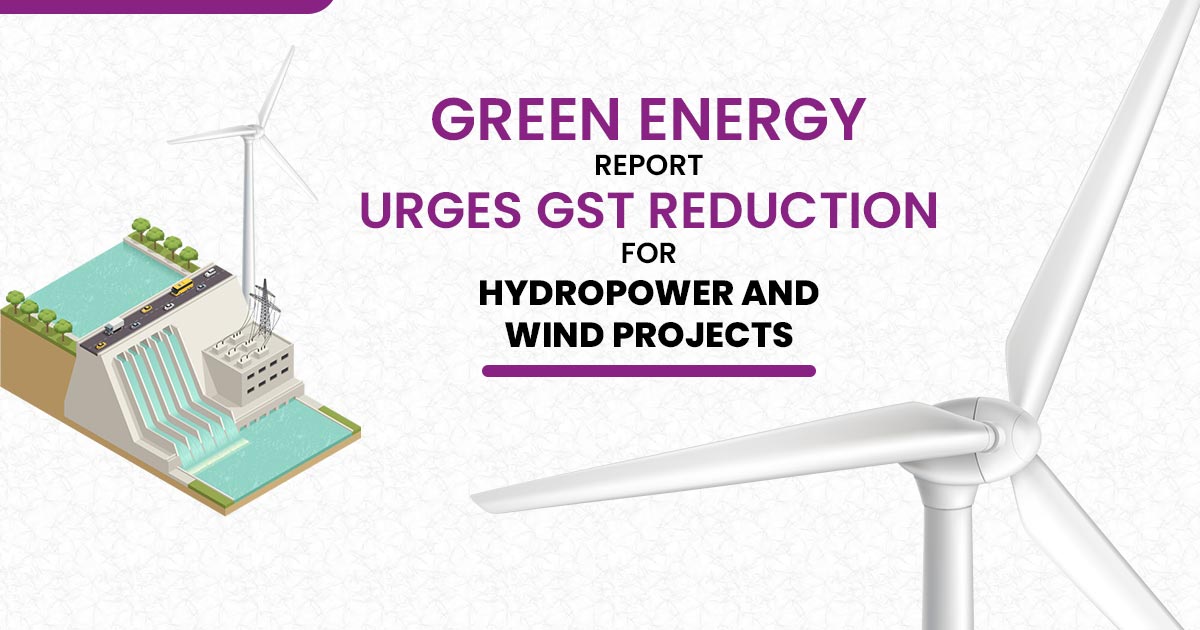
A series of recommendations have been listed by the study via the Institute of Energy Economics and Financial Analysis (IEEFA) and JMK Research for the country to reach its target of 500 gigawatts (GW) of renewable energy capacity by 2030.
To reduce the pressure on developers’ balance sheets and raise affordability a decrease in the GST on hydropower and wind projects is among the top recommendations.
The same recommended that the GST levied on the element of the hydropower project must be lessened to 12% from 18-28% charged at present and the GST on wind projects must be lowered from 12 percent to 5 percent.
It directed to maintain the tax rate on the energy storage sector at less than 5 percent for the subsequent 5 years. A 5% lower GST rate is required to be applied on the sale of Battery Energy Storage Systems (BESS) integrated systems and BESS components—batteries and cell modules for the following five years, it stated.
Inside the report the additions were stated and modifications in the green power sector along with the solar photovoltaic (PV) supply chain, utility-scale renewable energy, and rooftop solar.
In FY 2023-24, India added only a little over 18 gigawatts (GW) of renewable energy capacity. Sector Investments also dropped marginally from $11.7 billion in FY2022-23 to $11.4 billion in FY2023-24, as per the report.
Therefore the country should increase its efforts demanding exceeding 2.5 times the installation compared with the earlier financial year.
The additional suggestions along with the extension of 100% waiving in inter-state transmission system’ (ISTS) charges till 2030, scrapping reverse auctions for wind tenders, and financing structures like an InvIT to address difficulties concerned with the financing for the open access.
Read Also: NSEFI Advocates for a National Electricity Council Body Similarly GST Council
Also to acknowledge the pilot power exchange-based Contract for Difference (CfD) project for a small renewable energy capacity to exhibit as a use case, to handle an underutilized power exchange market, proposed to the ministry.
It has been recommended before the government to expedite the approval process for Visas so that the plans of expansion of Indian manufacturers to install the plant’s solar manufacturing do not get obstructed. It is difficult to take visas for skilled Chinese because of the current socio-political tension between India and China.








